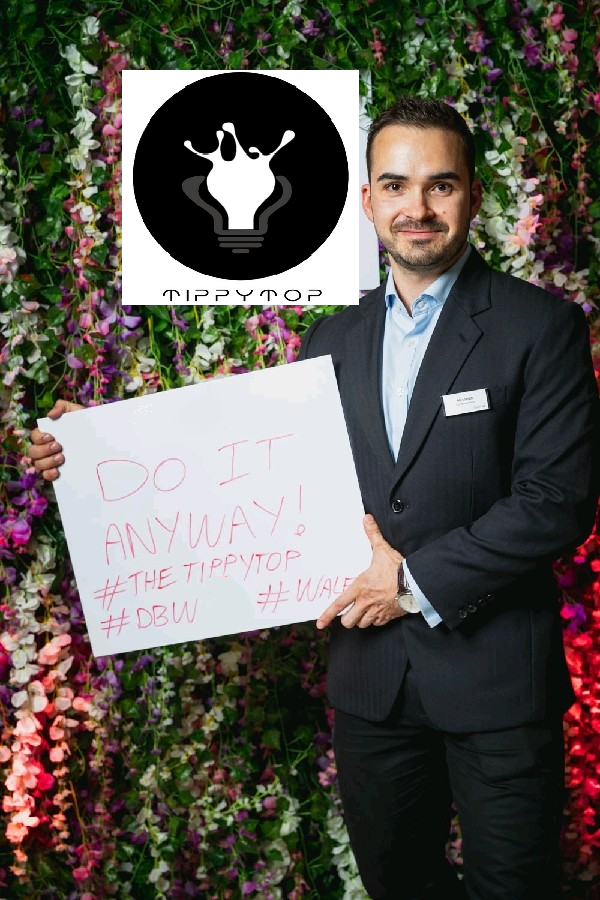 Photo by Thought Catalog on Unsplash
Photo by Thought Catalog on Unsplash
 Photo by Thought Catalog on Unsplash Photo by Thought Catalog on Unsplash Even if you have aspirations of being an entrepreneur, it’s often a good idea to work for someone else for a little while. Whether that’s a start-up or a corporate, you’ll likely need a solid cover letter. During my early career, I struggled to find good advice. Luckily for you though, I’ve done loads of research and been through the school of hard knocks so you don’t have to. The below techniques will make you one of the few candidates that master your cover letter, thereby dramatically increasing your chances of getting the job.
0 Comments
 Photo by Brooke Lark on Unsplash Photo by Brooke Lark on Unsplash Team, Team & Team are the 3 most important characteristics for an early-stage start-up right? Then why isn’t there more practical advice out there to help look after you valuable entrepreneurs? I’m not talking of course about finances but rather the things that may properly cripple your ability to execute on your business plan: mental and physical health. There is loads to discuss with mental health but let’s start off with some basics about physical health, specifically food. Whether you’re an entrepreneur, corporate lawyer or gardener, if you want to perform at your peak, you need to look and feel your best. Getting the right nutrition is key.  Forget Tesla, Space X and Hyperloop. I’m talking about something more exciting. I’m talking about the Cape Town start-up that managed to shake up the global F1 and leisure boating industry. In its life, Caudwell Marine received between $80m-$100m in funding. That’s well over one billion Rand. In South Africa, that goes a very long way so it might as well have been one billion US dollars. This was no ordinary start-up!  “Every era has its defining moments. Every generation has its icons and heroes whose great inventions capture hearts and minds with their cultural contributions." "Our friend Tim Bergling (1989 – 2018) was one of those bright shining stars who impacted the world with the music he gave us. Through his music he shared his joy, his pain, his passion and in a short time I would see the tremendous impact our collaboration would have on the world and it would change my life forever. Thank you, Tim.”  Most good company ideas are stolen. Success is all about timing and execution. How do I know this? Because I’ve spoken to countless wealthy entrepreneurs who were not ashamed to admit it. I might have also done it myself once before. It worked brilliantly except for the tiny yet pivotal fact that the product didn’t lend itself to repeat business... Case in point, before Facebook there was Ringo. It launched a full 8 months earlier, in June 2003. After only 3 months it had 200,000 users with a weekly growth rate of 10%.  It’s that time of year when you might consider the habitual practice of writing down new year’s resolutions for 2020. Subliminally beating yourself up for not accomplishing many of 2019’s goals. Stop. Don’t engage in this self-sabotaging behaviour for a second longer. Try this instead: Write down a list of things that worked well for you and things that did not.  We have all heard that some of the best businesses start in a restaurant with some rough notes scribbled on the back of a serviette. If that is the case, then why are countless people studying entrepreneurship and going back to [business] school to learn how to write business plans? Thinking around entrepreneurship has evolved. Historically there was belief that it was not possible to teach entrepreneurship. That has changed. Not only is it possible to teach, it has a positive correlation with success!  Entrepreneur: “Nailed it! I’ve found an Angel investor who’s agreed to invest £10k at my £5m post-money valuation and is willing to let me have a 6-figure salary.” Friend: “But that only gives the angel a 0.2% equity stake in your business…plan. How will they ever make a return?” This is one of those cases where if it sounds too good to be true…(you know the rest). Ok, so what’s the catch?  Starting a new business is an exciting time with many questions to be answered and decisions to be made.If you are a founder, you will most likely be working for free, perhaps alongside an existing job, until you can take the plunge to go full-time when the business starts bringing in money, whether that’s through investment, debt finance or early sales. However, in addition to the founders, many businesses will need other talent and skills to take the business forward.  For anyone working in the corporate world, there’s a book I highly recommend by Albert Bernstein called Emotional Vampires: Dealing With People Who Drain You Dry. As it turns out that not everyone has your best interests at heart and you need to know how to identify these sociopaths in order to protect yourself, your mental health and your career. The book has helped me tremendously. In the start-up world, there are other types of vampires. This time they’re looking to get their fangs into your equity. Here’s some tips on how to ensure you keep the bloodstains off your shirt.  Great business idea? Check. Shiny pitch deck? Check. Investor meeting? Check. What's next you might be asking? Turns out it’s a very good question. All VC-backed entrepreneurs will tell you that fundraising involves a steep learning curve, requires resilience and lots of work. It is unfortunately a large business distraction and can occupy your life for the best part of six months. Being prepared both mentally and administratively is key to success.  The Problem You started your own business because you have a great talent for providing a particular service. You make a decent living, but you never feel as if you are getting ahead. Why is your experience not being reflected in your bank balance? The Solution In the business world, they often talk about ‘levers’ that you can pull to improve profitability. For most service providers, there are 3 key levers:  Lost? Confused? Frustrated? Navigating the investment landscape as a new tech start-up can be a big challenge for budding entrepreneurs. For investors, evaluating start-ups is often considered more of an art than a pure science. However, that said there are a number of relatively concrete criteria that need to be in place first for an investor to take your start-up seriously.  I feel very fortunate to have experienced a live talk from the motivational speaker, Rob Moore. Rob’s speech stands as one of the most inspiring and educational speeches I have heard to date and I suspect will continue to do so for a long time. As Rob taught me, when you share your knowledge with others, magical things happen, so here you go. P.S. It turns out, there is a formula for success…  In the blog post on Finding Business Ideas we said that buying a business is often the quickest and easiest way to become an entrepreneur. Well, like buying a house, you don’t want to pay for fancy fixtures or a fresh lick of paint. You want the cheapest house in the best area. This typically means you’ll buy something beaten up that needs loads of TLC. The same goes for businesses and so being able to execute a turnaround is a key skill.  Start-ups are inherently vulnerable because they don't have cushy income stream propping them up or a stockpile of cash that they can dip into if things go awry. Therefore they must ensure that they are successful 90% of the time and that failures are hard and fast. The odds are clearly against entrepreneurs so this post is dedicated to helping you avoid the most common pitfalls so that you have a fighting chance of success. 
“OK thanks for the advice on motivating my non-existent employees and optimising my theoretical product mix, but can someone please explain to me how I actually start a business!?” I have found that despite the overabundance of literature on entrepreneurship, most of it doesn’t give you much practical advice on starting a business.
In fact, the first time I launched my start-up, I had no clue what I was doing and what a learning curve it was! The process has since been demystified, so I thought I’d share...  Right, you’ve stress-tested your business idea, convinced your co-founders about this incredible new plan and drawn up some basic legal agreements. At some stage you’ll need to start thinking about expanding the team. To be clear, we are dealing with expanding your team, not plugging the deficiencies of the founders. If you find yourself in the situation where you don’t have a co-founder to do the marketing in a consumer-focused business then...  Prior to launching your business it is advisable to get your legal house in order. Having the tough conversations now will likely save many relationships and may shave years off your retirement age! Now remember that when you start a business, everyone is positive, happy and friends. Hopefully it stays that way but...  The most valuable lesson I learned at Business School was that you do not need to personally make mistakes in order to learn that something is a bad idea. In other words, learn vicariously. This is a seemingly simple piece of advice, however it is extremely powerful and can save you copious amounts of time and money.  Now, this is quite a lengthy blog post because there is lots to cover here but arguably it is one of the most important parts of starting a business so worth the upfront effort. Here goes! It is probably best to write this document in a word editor and later you can convert it to something visually attractive in PowerPoint.  Ok so you want to start a business but you’re scraping the barrel for ideas. If that’s you, your thought process probably goes a bit like mine: “Come on, think!” you say to yourself. “Ok, it needs to be scalable and something that people need and makes money and is clever like an app or something cool like that… Hmmm, what about connecting people who have something to offer that others can’t find and then charge both of them a small fee and then rollout globally……  Almost everyone you speak to has some aspiration to start a business. The reluctance to do so stems from multiple different fears, some more valid than others. Here I will hopefully provide you with some insight as to whether to start now or hold fire a little bit longer. Let me preface this post by saying that if anyone asks me whether they should start a business or not, I invariably answer YES, so please take the no-go comments with a pinch of salt! |
Author
Alexander Leigh Categories
All
|
Disclaimer: Views expressed here are solely in my private capacity and do not in any way represent the views of organisations I might be affiliated or associated with.
Copyright 2022 The Tippy Top ©
Copyright 2022 The Tippy Top ©




 RSS Feed
RSS Feed